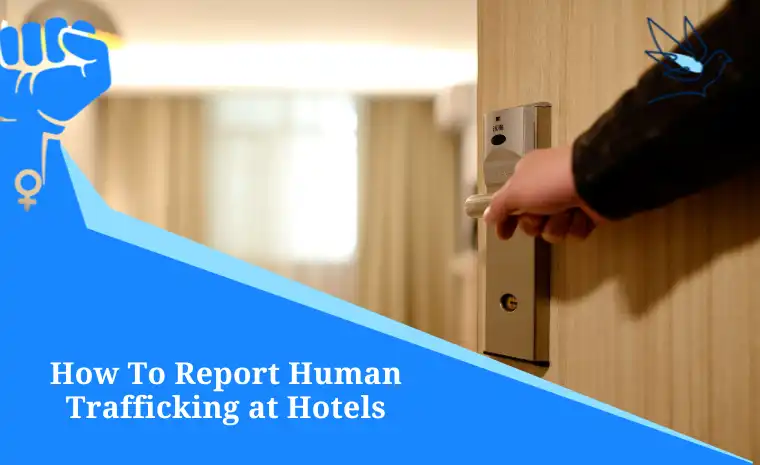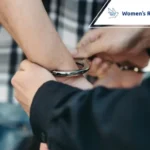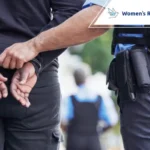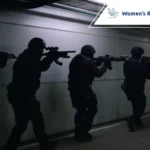The Human Trafficking Hotline describes human trafficking as an act that occurs when a trafficker uses force, fraud, or coercion to compel another person to provide labor and services or engage in a commercial sex act. Human trafficking is a crime of exploitation and is illegal in all 50 states.
Human trafficking activities are popular in the hotel industry due to the ease of anonymity. It is easier for human traffickers to go unnoticed and operate discreetly due to the lack of public knowledge of the signs of sex trafficking.
However, there are some indicators that may help hotel staff and guests identify a potential trafficking situation. Sometimes, we may think we are helpless in situations such as these, but there are ways in which a private individual can take action.
Reporting human trafficking at hotels is a way in which private individuals can alert staff or the proper organizations to possible human trafficking activities.
In this article, we will discuss:
- Who are the victims of human trafficking?
- How sex traffickers operate
- Indicators of trafficking in hotels
- What should you do if you suspect a sex trafficking activity
- Reporting human trafficking at hotels
- Are hotels responsible for human trafficking that occurs on their premises

Who Are the Victims of Human Trafficking?
A significant number of sex trafficking victims are adult women and young girls. This may be because women and girls are disproportionately at a disadvantage compared to males when it comes to education, economic empowerment, and social equality.
However, despite the inequalities that women and girls face, adult men and young boys may also be potential victims of sex trafficking.
Members of the LGBTQ+ community are also at a much higher risk of becoming victims of this despicable crime due to the discrimination and violence they face from society. These individuals are often forced into the underground community, making them more vulnerable to exploitation.
Runaway or homeless youth are also targets for human trafficking due to their lack of stable family relationships, economic opportunities, or social networks. They may be tricked into sexual exploitation by traffickers with the promise of security and stable income.
How Sex Traffickers Operate
As previously stated, the hospitality industry is often used in sex trafficking activities due to the anonymity it offers traffickers. Sex traffickers also prefer to use hotels as it offers ease of access to their customers as well.
Traffickers may also transact in cash, therefore maintaining secrecy through finances. Sex traffickers also do not need to pay for facility maintenance or upkeep expenses, as this is offered to them by housekeeping staff.
Indicators of Trafficking in Hotels
As a hotel guest, you may have encountered a victim of sex trafficking without even realizing it. Hotel staff such as front desk staff, valet staff, and housekeeping may also encounter human traffickers and their victims while on the job.
The following are some signs of trafficking that may denote a human trafficking victim:
- Individuals are inappropriately dressed for their age
- Poor quality clothing compared to their companion or others in their party
- Signs of malnourishment, poor hygiene, or dental health
- Avoidant of social interactions or eye contact
- If they do engage in social interaction, the potential victim may stick to a scripted or rehearsed response
- Bruising, broken bones, or other signs of medical problems that have been untreated
- Exhibiting unusual behavior
- The suspected victim appears impoverished or without personal possessions
Hotel staff may observe some additional key details such as:
- The suspected victim does not possess their own money, pay with cash or a preloaded credit card
- Requests for additional towels, new linens, and the like to be sent to their room, but refuses cleaning services for several days
- For non-long-term stays, the room is rented only for an hour or for less than a day
- The “Do Not Disturb” sign is always on the door
- The suspected victim appears fearful or anxious
- The suspected victim appears to have a lack of freedom or is closely monitored
- Extended stay but with little to no personal possessions
Reporting Human Trafficking at Hotels
If you suspect another hotel guest of being a victim of sex trafficking, there are some steps you can take to protect yourself and the victim.
1. Observe as much as you can. Be mindful of locations, clothing, descriptions, and if possible, any names that were used.
2. Do not confront the suspected trafficker or the victim. Doing so may put yourself or the victim in danger.
3. Discreetly alert hotel management, authorities, or any security personnel.
4. You may also report a tip to the National Human Trafficking Hotline at 1-888-373-7888.
You may also call the Women’s Rights Group at (844) 240-4967 or reach us through our confidential contact form. We can help you, and the possible victim receives the needed services or assistance.
Are Hotels Responsible For Human Trafficking That Occurs on Their Premises
Under California law, hotel and motel employers are required to provide 20 minutes of human trafficking awareness training to all their employees and staff.
Assembly Bill 1788 states that a hotel may be held liable for sex trafficking activities if:
- A sex trafficking activity occurred in the hotel, and
- A supervisory employee of the hotel was aware of the activity and failed to inform law enforcement, the National Human Trafficking Hotline, or a victim service organization within 24 hours.
Get the Help You Need Today!
If you or someone you know has been a victim of sex trafficking, don’t hesitate to seek help. The Women’s Rights Group is a national organization dedicated to assisting individuals who have been victims of sexual violence in commercial spaces. Our anti-trafficking services have helped many women receive the compensation they need to rebuild their lives.
We can help you get the medical care and legal representation you need to help you through this difficult and complex process.
Contact us at (844) 240-4967 for a free, confidential consultation or reach us through our contact form and find out how we can help you.






